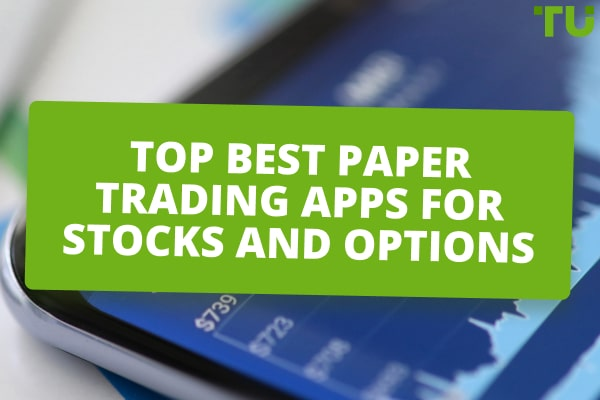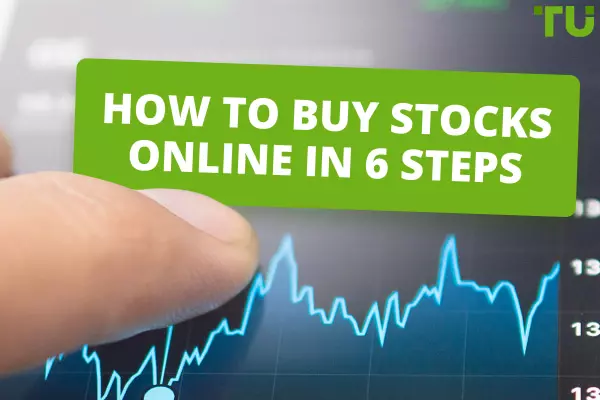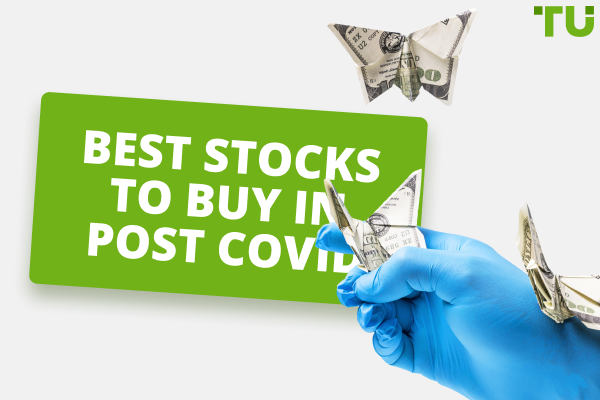Top 6 Best Free Trading Platforms in 2024
The concept of free stock trading has become highly popular in the last few years. Most novice traders want to use free stock trading as a tool to gain hands-on experience in trading and test the trading platforms. Not all trading platforms are free. Most brokers claim to offer free trading platforms but impose several hidden costs. Only a few trading platforms are true to their claims and facilitate trading free of cost. Choosing these best free trading platforms out of over 3000 platforms available online can be a difficult task for novice traders.
Our experts, at TradersUnion, analyzed the commissions, margins, costs, minimum deposits, and withdrawal or deposit fees of various brokers and identified the 6 best brokers that offer free trading platforms in 2023.
Rating of Free Trading Platforms in 2024
| Broker | Fees | Minimal deposit | Regulation | Markets | |
|---|---|---|---|---|---|
$0 per trade |
$0 |
The Financial Industry Regulatory Authority (FINRA). |
The United States (NYSE and NASDAQ). |
||
$0 per trade |
$0 |
The US Financial Industry Regulatory Authority (FINRA) and The Securities Investor Protection Corporation (SIPC) |
The United States (NYSE and NASDAQ). |
||
$0 per trade |
$0 |
The US Financial Industry Regulatory Authority (FINRA) and The Securities Investor Protection Corporation (SIPC) |
15 countries including, the United States, China, Hong Kong, Malaysia, and Singapore |
||
$0 per trade |
$0 |
The UK Financial Regulatory Authority (FCA), the US Securities and Exchange Commission (SEC), The US Financial Industry Regulatory Authority (FINRA) |
The United States, Europe, India, Canada, Australia, Hong Kong, Japan, and Singapore. |
||
$0 per trade |
$0 |
The U.S. Securities and Exchange Commission (SEC) and the Financial Conduct Authority (UK), and The Financial Industry Regulatory Authority (FINRA). |
The United States, India, Brazil, Turkey, Japan, China, and Korea. |
||
$0 per trade |
$0 |
The Securities and Exchange Commission (SEC) and the Financial Industry Regulatory Authority (FINRA). |
The United States |
Free Brokerage Accounts Comparison
Here we compared the 6 best free trading platforms based on the commissions and fees they collect for stocks, ETFs, and Stock Options.
| Broker | Stocks | ETFs | Options | Account Fee | Inactivity Fee | Other Fees (Optional) |
|---|---|---|---|---|---|---|
Commission-free (Regulatory charges apply) |
Commission-free (Regulatory charges apply) |
10¢ per trade |
$0 |
$0 |
$35 transfer fee |
|
Commission-free (Regulatory charges apply) |
Commission-free (Regulatory charges apply) |
Commission-free (Regulatory charges apply) |
$0 |
$0 |
$75 ACAT outgoing transfer fee. |
|
Commission-free (Regulatory charges apply) |
Commission-free (Regulatory charges apply) |
$0.65 fee per contract (Regulatory charges apply) |
$0 |
$0 |
$75 transfer fee |
|
Commission-free for IBKR Lite users (Regulatory charges apply) |
Commission-free (Regulatory charges apply) |
$0.65 per contract (Regulatory charges apply) |
$0 |
$0 |
||
Commission-free (Regulatory charges apply) |
Commission-free (Regulatory charges apply) |
Commission-free (Regulatory charges apply) |
$0 |
$0 |
$75 transfer fee |
|
Commission-free (Regulatory charges apply) |
Commission-free (Regulatory charges apply) |
$0.50 fee per contract (Regulatory charges apply) |
$0 |
$0 |
$50 ACAT outgoing transfer fee. |
eOption
eOption is an American low-cost broker that has been providing a range of financial services since 2017. Today, the company offers new traders and professionals access to trading stocks, ETFs and options with zero or ultra-low commission rates.
For example, eOption’s commission for trading US stocks and ETF is zero. The platform’s expertise, however, is options trading, with only 10 cent commission charged per contract, which is one of the lowest levels in the market. The largest competitors of the broker charge $0.65 for the same contract.
The broker’s vast awards’ collection includes THE BEST BROKER FOR LOW-COST OPTIONS TRADING, BEST FOR LOW-COST OPTIONS CONTRACTS.
The size of the commission is not tied to the trading volume, which makes trading lucrative not only for professionals, but also for novice traders.
eOption’s base rate for margin credits is 7.75%.
The broker has everything a beginner may need:
No minimum deposit requirements
User-friendly trading platform
Free Demo Account
Robinhood
Robinhood has revolutionized the concept of free stock trading by offering commission-free trades on instruments such as stocks, ETFs, options, and cryptocurrencies. With its user-friendly web and mobile trading platforms, Robinhood facilitates trading in over 5000 individual stocks and ETFs. In addition to trading services, Robinhood also offers a cash management account that earns up to 0.30% annual percentage yield on idle cash. Robinhood gives free access to charts, expert ratings, statistical reports to its users.
As of December 2020, Robinhood charges a margin interest rate of 2.5% on the margin debt. To access the margin trading facility, users need to upgrade to Robinhood Gold account. As per the industry’s standards, the users need to maintain $2000 in the account to avail margin trading. Robinhood is a highly preferred trading platform as it offers $1.25 million in insurance from Federal Deposit Insurance Corporation (FDIC).
A few other attractive additional features of Robinhood are:
Fractional trading
Dividend reinvestment through Dividend Reinvestment Plans (DRIPs)
A wide range of educational content
One free promo stock worth between $3 and $225
The customer support of Robinhood is not user-friendly when compared to other trading platforms. However, all simple doubts related to account opening, commissions, and costs have been clarified on Robinhood’s website.
TD Ameritrade
TD Ameritrade is a low-cost trading platform suitable for both beginners and experienced traders. It offers a $0 minimum deposit and facilitates trading in stocks, ETFs, and options. An investor can also get access to over 700 mutual funds with the lowest possible expense ratio of 0.5% on Ameritrade’s trading platform.
Ameritrade also offers several free research tools and high-quality education on stock trading. The customer service of Ameritrade is top-notch because the service executives are always available across all the 300 branches for online, telephonic, and in-person support. It has two trading platforms which include Ameritrade Web and Thinkorswim.
Most novice investors like TD Ameritrade because of its virtual trading simulator. This simulator provides $100,000 practice money along with access to the margin account. Inexperienced traders can utilize this opportunity to gain trading experience and test the platform before committing real money.
The margin lending rates of TD Ameritrade are a bit higher when compared to its peers. Ameritrade’s margin interest rate for the debt amount up to $10,000 is 9.5%. If the debt amount exceeds $0.25 million, the margin interest rate goes down to 7.5%. Traders can speak to customer care to reduce the margin interest rate further if the debt amount exceeds $0.5 million.
The only shortcoming of Ameritrade is that it does not offer fractional investing. Fractional investing would have helped beginners become the shareholders of fundamentally strong companies trading above $1000, with a minimum investment.
Interactive Brokers
Interactive Brokers is one of the experienced stock brokers in the world. It offers free trading on stocks, ETFs, and options via its IBKR Lite account, launched in 2019. Interactive Brokers would also facilitate investing in mutual funds and fixed income instruments via IBKR Lite membership. The users of IBKR Lite would also get access to a pool of 26,000 funds worldwide. Interactive Brokers is the best trading platform for users who want to invest in ETFs because its mutual funds replicator helps to quickly identify low-cost ETFs. This stockbroker operates in 33 countries and covers 135 markets across the world.
If you don’t have experience in investing or trading, you may seek the help of automated portfolio management services offered by Interactive Brokers. The advisor team would help beginners to build a superior portfolio of assets based on their risk tolerance and monitor it for an asset-based management fee of 0.12% per annum.
Users may opt for an IBKR Pro account to do advanced trading activities. With the Pro account, users would get access to smart order routers, several tradable securities, and low margin rates.
Interactive Broker’s margin lending rates are the lowest in the industry. Its margin interest rate for the debt amount up to $25,000 is 1.59%. If the debt amount exceeds $3.5 million, the margin interest rate goes down to 0.86%.
Webull
The U.S based discount broker, Webull offers commission-free trading of stocks, ETFs, and options to customers. This trading platform also offers fractional stocks, cryptocurrencies, and retirement account. The key features of WeBull are free real-time quotes, accessibility to multi-platform, extended hours of trading, 24x7 online customer support, and zero commission.
Webull does not charge any commission on stocks, ETFs, and options trading, whilst its competitors charge anywhere between $0.5 and $0.65 per contract on options trading. Users, however, are expected to pay the regulatory fees on every transaction. Most beginning traders want to deposit the lowest possible amount to the trading platform to learn the trading. With the $0 minimum deposit, Webull has become a favorite stock broker for beginning investors. However, the traders need to main a minimum balance of $2000 to do margin trading with Webull.
The margin lending rates vary based on the size of the margin loan. Webull charges the margin interest for only the leveraged positions overnight. The annual margin interest rate at Webull ranges from 3.99% to 6.99%.
The annual margin interest on the debit balance higher than $3 million is 3.99%
The annual margin interest on the debit balance up to $25,000 is 6.99%
Ally Invest
Ally Invest is one of the user-friendly trading platforms that facilitate commission-free trading. This trading platform is suitable for both novice and experienced traders who want to trade on U.S based stocks, ETFs, and options. The features like automated portfolio management, a large pool of technical indicators, and accessibility to 11,200 no-transaction-fee mutual funds make Ally Invest the best free trading platform in 2023.
Ally Invest runs several promotions to attract new traders. For instance, it offers a cash bonus of $100 on a minimum deposit of $10,000 to the trading account. The cash bonus can go up to $3,000 for a cash deposit higher than $2 million.
The margin lending rates of Ally Invest are competitive for the investors who use large amounts of margin. Its margin lending rate is 7.75% for the amount up to $10,000. If the amount exceeds $1 million, the lending rate falls to 3.25%.
The browser-based trading platform of Ally Invest has several capabilities including real-time streaming of data and a custom dashboard. Ally Invest also has mobile trading apps which include Ally Mobile and Ally Forex. It offers 117 charting indicators, 36 drawing tools, and 21 field-watchlist to help traders enjoy a seamless trading experience. The customer service of Ally Invest is moderate. It offers 24x5 support on emails, chats, and telephone.
How to Buy Stocks Online Free
This guide outlines various steps involved in the process of buying stocks online for free. We have used Webull as an example to showcase how one can buy stocks online for free.
Step 1: Registration with a Trading Platform
Choose a commission-free trading platform and register with it. If you use Webull, you may need to sign-up to its trading platform by entering your email id or phone number. Upon completing the registration, Webull may send a verification code to your email id or phone to confirm your identity.
Step 2: Get Your Free Promo Stock
Trading platforms would review your registration details and approve your application. If you register with Webull, you would become eligible for the first promo stock worth $3 to $300 soon as your account is approved.
Step 3: Link your Bank Account to Transfer Funds
On Webull, you can link your bank account to the trading platform and transfer funds via ACH or wire transfer. You would become eligible for claiming the second promo stock worth $7 to $2000 after funding your account with a minimum of $5. According to Webull, free stocks arrive into the user’s account after their deposit settles. Deposits made via ACH may take up to five business days to settle. Wire transfers may take a maximum of two business days. You can sell the free stock and use the proceeds to purchase another stork or withdraw them.
Step 4: Create a Watchlist
The free trading platform is the one that eliminates commissions on trading. Users may need to use their real money to purchase shares. Creating a watchlist is a vital step in the process of purchasing a stock online with real money.
A trading platform like Webull allows users to create a watchlist of stocks and monitor their movements. To add a stock to the watchlist on Webull, you may need to use the search column that appears on the upper right corner of your trading window. Just click the star symbol beside the stock name to add it to the watchlist.
Step 5: Pick your Stock and Purchase Shares
You can pick a stock from the watchlist and make a purchase. On Webull, a small window pops up with the columns such as buy, sell, order type, quantity, and the limit price when you click a particular stock on the watchlist. You may need to enter details like quantity and order type before clicking the buy button.
How do Free Trading Platforms Make Money?
There are several ways through which free trading platforms make money.
Margin lending rates: The margin lending rate of most brokers fall between 2% and 9%, except for Interactive Brokers, whose highest margin lending rate is 1.59%. For example, if a client uses the margin amount of $1 million for one year, a broker like E*Trade Financial earns around $54,500.
Fees on Upgraded Services: Most brokers facilitate free trading on basic or standard accounts. If the user wants to upgrade to a higher-level account, the charges would apply. For example, Interactive Brokers give commission-free trading of options on the IBKR Lite account. The users of IBKR Pro would pay a fee of $0.65 per options contract.
Deposit and Withdrawal Fees: Not all free trading platforms offer free deposits and withdrawals. For instance, ACH deposits and withdrawals do not attract any fees with Webull. However, the deposits via wire transfer from the U.S. Bank account and non-U.S. Bank account attract a fee of $8 and $25 respectively. The withdrawals via wire transfer to the U.S. Bank account and non-U.S. Bank account attract a fee of $12.5 and $45 respectively.
Transaction-based Revenues: Payment for Order Flow is one of the reasons why most trading platforms like Robinhood offer commission-free trading. Brokers generate transaction-based revenues by routing orders to market makers. For instance, Robinhood earned a transaction-based revenue of $420.4 million in Q1 of 2023. The transaction-based revenue contributes more than 50% of the total revenues of most zero-commission brokers.
Methodology
Traders Union follows a robust methodology to evaluate traders. It evaluates each trading platform against over 100 parameters across five categories which include financial, reliability, trading conditions, and service work. When it comes to the category of financial, the parameters such as broker’s solvency, liquidity position, economic status, and trade growth/decline are considered. With regards to the category of reliability, the parameters such as customer satisfaction, level of trust, and reputation are considered. We checked the availability of licenses from regulatory bodies to confirm if the broker is safe or not.
While evaluating free trading platforms, we have considered the following parameters:
-
1
Minimum deposit
-
2
Promo stocks
-
3
Availability of low-transaction mutual funds
-
4
Availability of free education
-
5
Commissions on trading securities such as stocks, ETFs, and options
-
6
Availability of technical indicators at free of cost
-
7
Account fees
-
8
Inactivity fees
Summary
Overall, several trading platforms offer commission-free trading services. However, not all of them are reliable. Traders may need to evaluate each broker and select a suitable one. The 6 best free trading platforms identified in this article offer trading services commission-free. They are also reliable and have valid licenses from regulatory bodies. We recommend novice traders use trading platforms that offer facilities such as paper trading and automated portfolio management. Paper trading helps to gain trading experience and develop appropriate trading strategies. Robinhood is the best choice if you are looking for a user-friendly trading platform. Ameritrade can be the right choice for novice traders as it gives access to a virtual trading simulator freely.
FAQs
Are these trading platforms really free?
Yes, they are free to a large extent. A novice trader can get rid of extra fees like deposit or withdrawal fees, inactivity fees, account fees, and trading commissions by associating with one of these free trading platforms. Most basic services on these platforms are free. If you want premium services, you may need to spend money to access them.
What could be the regulatory charges associated with trading on stocks, ETFs, and options?
Every trader needs to pay the regulatory fee to the Financial Industry Regulatory Authority (FINRA) on each trading transaction they make.
Regulatory charges of Stocks and ETFs trading:
- 0.0000051*Total $ Trade Amount (Min $0.01)
- $0.000119 * Total Trade Volume Min $0.01 per share - Max $5.95 per trade
Regulatory charges of Stocks and ETFs trading:
- $0.0000051*Total $ Trade Amount (Min $0.01)
- $0.002 * No. of Contracts (Min $0.01)
- $0.033 * No. of Contracts
- $0.02 * No. of Contracts (Max $55 per Trade)
Which broker is best for margin trading?
Interactive Brokers is a perfect choice if the trader wants to do margin trading because it offers the lowest margin lending rates in the industry. It offers a margin lending rate between 0.86% and 1.59%. None of the other brokers in the industry offer such low margin lending rates. You can also choose to go ahead with Robinhood as its margin lending rate is 2.5% per annum.
Which is better, trading or long-term investing?
There is a lot of difference between trading and long-term investing. It depends on your financial goals, strategies, and behavior. If you love to closely monitor the stock movements and do technical analysis perfectly, you may choose to become a trader. If you want to invest money in a fundamentally strong stock and leave it for the long-term to create wealth, you may choose to become a long-term investor.
Team that worked on the article
Hafijur Rahaman is a professional content writer with a focus on trading. He joined Traders Union as a writer in 2022. His goal is to help both new and pro traders in this competitive sector. He enjoys making constant improvements to content, always finding better and simpler ways to communicate the message. In addition, he also gets to exercise his writing and research skills by writing reviews and other content. He also does freelance work as a financial copywriter.
Hafijur’s motto: Creating change, I awaken myself to possibilities.
Olga Shendetskaya has been a part of the Traders Union team as an author, editor and proofreader since 2017. Since 2020, Shendetskaya has been the assistant chief editor of the website of Traders Union, an international association of traders. She has over 10 years of experience of working with economic and financial texts. In the period of 2017-2020, Olga has worked as a journalist and editor of laftNews news agency, economic and financial news sections. At the moment, Olga is a part of the team of top industry experts involved in creation of educational articles in finance and investment, overseeing their writing and publication on the Traders Union website.
Olga has extensive experience in writing and editing articles about the specifics of working in the Forex market, cryptocurrency market, stock exchanges and also in the segment of financial investment in general. This level of expertise allows Olga to create unique and comprehensive articles, describing complex investment mechanisms in a simple and accessible way for traders of any level.
Olga’s motto: Do well and you’ll be well!
Mirjan Hipolito is a journalist and news editor at Traders Union. She is an expert crypto writer with five years of experience in the financial markets. Her specialties are daily market news, price predictions, and Initial Coin Offerings (ICO). Mirjan is a cryptocurrency and stock trader. This deep understanding of the finance sector allows her to create informative and engaging content that helps readers easily navigate the complexities of the crypto world.
















